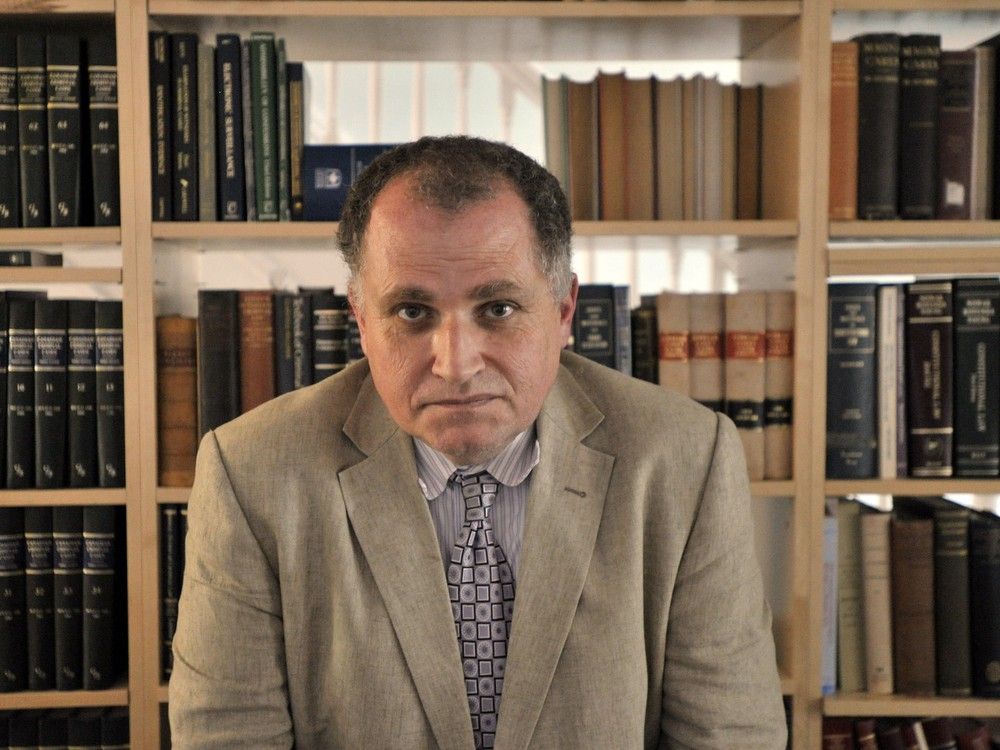Military chaplains said that some Canadian Forces members are experiencing "lengthy commutes and a diminished work-life balance.”
Get the latest from David Pugliese, Ottawa Citizen straight to your inbox
Published Dec 31, 2024 • Last updated 0 minutes ago • 4 minute read

Some Canadian military personnel are finding it difficult to adjust to a return to office-based work and don’t feel supervisors fully appreciate the benefits of hybrid employment arrangements, the country’s top officer has been told.
In June 2024, then-chief of the defence staff Gen. Wayne Eyre issued a clarification to Canadian Forces personnel about returning to in-person work five days a week. Eyre said that military operations thrive on teamwork, cohesion and face-to-face interactions.
Advertisement 2
THIS CONTENT IS RESERVED FOR SUBSCRIBERS ONLY
Subscribe now to read the latest news in your city and across Canada.
- Exclusive articles from Elizabeth Payne, David Pugliese, Andrew Duffy, Bruce Deachman and others. Plus, food reviews and event listings in the weekly newsletter, Ottawa, Out of Office.
- Unlimited online access to Ottawa Citizen and 15 news sites with one account.
- Ottawa Citizen ePaper, an electronic replica of the print edition to view on any device, share and comment on.
- Daily puzzles, including the New York Times Crossword.
- Support local journalism.
SUBSCRIBE TO UNLOCK MORE ARTICLES
Subscribe now to read the latest news in your city and across Canada.
- Exclusive articles from Elizabeth Payne, David Pugliese, Andrew Duffy, Bruce Deachman and others. Plus, food reviews and event listings in the weekly newsletter, Ottawa, Out of Office.
- Unlimited online access to Ottawa Citizen and 15 news sites with one account.
- Ottawa Citizen ePaper, an electronic replica of the print edition to view on any device, share and comment on.
- Daily puzzles, including the New York Times Crossword.
- Support local journalism.
REGISTER / SIGN IN TO UNLOCK MORE ARTICLES
Create an account or sign in to continue with your reading experience.
- Access articles from across Canada with one account.
- Share your thoughts and join the conversation in the comments.
- Enjoy additional articles per month.
- Get email updates from your favourite authors.
THIS ARTICLE IS FREE TO READ REGISTER TO UNLOCK.
Create an account or sign in to continue with your reading experience.
- Access articles from across Canada with one account
- Share your thoughts and join the conversation in the comments
- Enjoy additional articles per month
- Get email updates from your favourite authors
Sign In or Create an Account
or
Article content
In an Oct. 29 briefing for Eyre’s successor, Gen. Jennie Carignan, military chaplains pointed out that the return to what is referred to as in-person work was anticipated, and for many in uniform, it has positively impacted morale and camaraderie.
However, some individuals are finding the adjustment challenging after experiencing the flexibility of remote work and that is becoming a significant source of stress for certain families, the chaplains added in their briefing.
“After three to four years of hybrid work arrangements, many families have structured spousal employment, childcare, after-school care, and recreational activities around this model,” they said to Carignan. “For these individuals, the return to office-based work has introduced challenges such as lengthy commutes and a diminished work-life balance.”
The chaplain’s reported also added that “those who have consistently delivered high performance and support while working remotely feel disheartened that the CAF and, more specifically, their supervisors, are not recognizing fully the benefits that hybrid work arrangements offer – not only for individuals and families but also for the broader organizations.”
Advertisement 3
Article content
The briefing was provided to the Ottawa Citizen by military sources.
Department of National Defence spokesperson Alex Tétreault said in an email that the military leadership expects all Canadian Armed Forces members to work from a DND or CAF established workspace five days a week. “We acknowledge the necessity of flexibility in certain circumstances,” Tétreault stated. “Leaders and supervisors are empowered to assess individual needs and operational requirements, granting discretion to allow remote or hybrid work, where appropriate.”
Tétreault said that type of “flexibility is crucial for accommodating teams dispersed across different locations and optimizing efficiency without compromising readiness.”
He said the Canadian Forces does not have statistics for the on-site presence for Canadian military members for the period covering the COVID-19 pandemic or for the current situation.
The chaplains also warned Carignan that some military personnel are facing increased pressure to work after hours and on weekends, either in the office or from home. “The situation is exacerbated by a growing number of secondary duties and unclear priorities, all of which have a negative impact on morale,” they said.
Advertisement 4
Article content
The chaplains, however, did report that some military members taking on increased responsibilities are receiving strong support and understanding from their superiors, which has helped alleviate some of the burden.
The remote-work issue has been a hot topic of debate among government employees.
The new remote-work rules, which took effect in early September, require all staff employed under the Treasury Board, including civilian DND staff, to work on-site a minimum of three days a week. For executives, the expectation is that they work in the office four days a week. As of June, that included more than 282,000 workers, of the more than 367,000 working for the federal government.
Since May, when the government announced the new rules, unions have been fighting back — holding rallies, filing complaints, encouraging members to submit grievances, sending open letters and launching petitions. PSAC, which is the largest federal public sector union, also filed a challenge in Federal Court of the new remote-work policy and has called on the government to “scrap the mandate, rethink its approach, and follow the evidence.”
Advertisement 5
Article content
Internal Treasury Board documents, obtained by PSAC through access to information requests, show that the federal government’s decision to send employees back to the office three days a week was partially made to gain the public’s trust and contradicted studies that found remote work boosted productivity. The government maintains that it conducted no formal studies of productivity before deciding to update its policy.
While deputy Clerk of the Privy Council Christiane Fox told the Ottawa Citizen in early October that she doesn’t disagree with the argument some workers could individually do their work just as well from home as they can in the office, she said that those employees are needed in the office “to support younger staff so they can learn from you and learn the trade and be part of something that is about service to Canadians.”
Fox said that the government “did look at data and in some cases, there is some data to suggest that productivity at home can remain consistent.”
Remote work is generally popular among Canadians, but that support for more flexible work arrangements doesn’t seem to extend to public servants. A poll conducted by Nanos Research last summer found that three out of four Canadians either supported or somewhat supported the government’s new requirement that public servants work in the office at least three days a week.
(With files from Catherine Morrison)
David Pugliese is an award-winning journalist covering Canadian Forces and military issues in Canada. To support his work, including exclusive content for subscribers only, sign up here: ottawacitizen.com/subscribe
Recommended from Editorial
-

Return-to-office rules broken by almost a third of TBS staff
-

We asked every Ottawa-area MP if they supported federal remote work rules. None gave a straight answer
Article content
.png)
 1 week ago
14
1 week ago
14




































 Bengali (BD) ·
Bengali (BD) ·  English (US) ·
English (US) ·